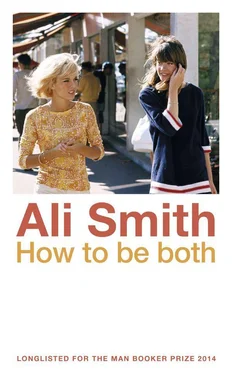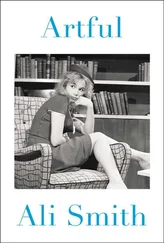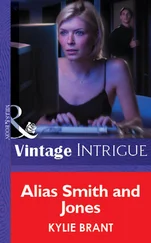Remarkably slow really, Henry says.
He starts singing words.
Cars and stars, cars and stars.
It’s exciting, her mother says.
Really cold tonight, George says.
Don’t be so boring, George, her mother says.
Ia, George says because this conversation takes place when she has started insisting that her mother and father, when they use her name, call her her full name.
Her mother snorts a laugh.
What? George says.
It’s just that when you say that, well. It sounds like you’re saying something funny from my youth, her mother says. It’s how we used to do caricatures of the rich kids. D’you remember, Nathan?
No, her father says.
Yah, George, yah, her mother says pretending to be a posh girl from the past.
George can choose react or ignore. She chooses ignore.
We wouldn’t be able to see anything anyway, she says. There’ll be too much local light.
We’ll put all the lights off, her mother says.
I don’t mean our lights. I mean all the lights of the whole of Cambridge, George says.
We’ll put all those lights off too, her mother says. Brightest around midnight . Right. I know. We can all get in the car and drive out of town to the back of Fulbourn and watch them from there, Nathan, what do you think?
Up at six, Carol, her father says.
Good, okay, her mother says. You stay at home with Henry, and me and George, I mean George yah, will go.
Georgia and I, George says. And I’m not going.
That makes three of you George yahs not going, her mother says. Okay. All three of you plus your father can stay at home with Henry and I’ll go myself. Nathan, his face is going very red, put him down.
No because I want to see the sixty stars, Henry says still upside down. I want to see them more than anyone else in this actual room.
It says here there might even be fireballs, her mother says.
I want to see fireballs a lot actually, Henry says.
It’s just pollution. And satellites, George says. There’s no point.
Miss Moan, her father says shaking Henry in the air.
Ms Moan, her mother says.
Pardon my world-stopping act of political incorrectness, her father says.
He says it gently and means it both funnily and nastily.
I prefer Miss, George says. Till I’m, you know, Doctor Moan.
Too young to know the political importance of choosing to be called Ms anything, her mother says.
She could be saying this to George or her father. Her father is ten years younger than her mother which means, her mother likes to say, that they have been formed by very different political upbringings, the main difference being a childhood under Thatcher versus a late adolescence under Thatcher.
(Thatcher was a prime minister some time after Churchill and long before George was born who, according to one of her mother’s most successful Subverts, gave birth to a baby Blair, someone George actually remembers being prime minister from when she was small, him in a nappy and so on but standing fully-formed and otherwise naked on a shell (not the beach kind, the missile kind) with Thatcher all puffed-out cheeks blowing his hair about and baby Blair with one hand over his crotch and the other coy at his chest and the caption underneath: The Birth of Vain Us. That Subvert, George remembers, was everywhere. It was funny seeing it in all the papers and online and knowing and not being able to tell anyone that it was her mother who’d pressed the button that sent it out into the world.)
What the age difference between her parents means in real terms though is that they’ve split up twice, though twice so far got back together again.
And I suppose the days of you being at least gracious to me about feminism are long gone, but I won’t complain, since it won’t make any difference and since the history of feminism teaches one never to expect graciousness anyway, and when you’re putting that child down, try not to put him down too hard on his head or you’ll break his neck, her mother says without looking up from the screen. And George. Or whatever your name is. If you miss seeing this with me you’ll regret it for the rest of your days.
I won’t, George says.
Not says. Said.
There was an obituary in the Independent, because although George’s mother wasn’t famous like people who get obituaries usually are, and although she didn’t have tenure any more, she still had a quite important job at a think-tank and occasionally published opinion pieces in the Guardian or the Telegraph and sometimes also the American papers in their European editions, and a lot more people knew who she was after it was unveiled in the papers about the guerrilla internet stuff. Dr Carol Martineau Economist Journalist Internet Guerrilla Interventionist 19 November 1962–10 September 2013 aged 50 years . It says, in the first paragraph, renaissance woman . It says childhood Scottish Cairngorms education Edinburgh Bristol London . It says articles and talks ideology pay ratios pay differentials literal ideological consequences spread of UK poverty . It says thesis backed by IMF recognition inequality and slowdown in growth and stability . It mentions her particular bugbear, chief executive interests workforce kept low-waged . It says discovery three years ago Martineau one of the anonymous influential satire Subverts online art movement thousands supporters imitators .
It says tragic unsuspected allergic reaction standard antibiotic .
The last thing it says is is survived by. That means dead. Husband Nathan Cook and their two children .
It all means dead.
It all means George’s mother has disappeared off, or rather into, the face of the earth.
Every day before work George’s mother, when she was alive (because she can’t exactly do it now being, you know, dead), used to do a keep-fit set of stretches and exercises. At the end of this she would always do a dance round the living room for the length of a song on a playlist on her phone.
She’d started doing this a couple of years ago. Every day she put up with everybody laughing at her doing her moves among the furniture, her headphones bigger than her ears.
Every single day, George has decided, from its first day onwards for this first year in which her mother won’t be alive, she will not just wear something black somewhere on her person but she will do the sixties dance for her in her honour. This is only problematic in that George will have to listen to songs while she does it, and that listening to songs is one of the things she can no longer do without inducing a kind of sadness that actually hurts in the chest.
George’s mother’s phone is one of the things that went missing in the panic and aftermath. It hasn’t turned up, though the house is still full of all her other things exactly where she left them. She will have had her phone with her. It went missing between the railway station and the hospital. Its number has been stopped, presumably by her father. If you ring it now the message you get is the recorded voice telling you this number is currently not in use.
George thinks her mother’s phone has probably been taken by someone working in surveillance.
George’s father: George, I told you. I don’t want to hear any more of that paranoid nonsense from you.
Mrs Rock: So you believe your mother’s phone was taken by someone working in surveillance?
All her mother’s playlists were on her phone. Her mother was unusually private about her phone. George only sneaked a look at it once or twice (and both times felt bad for doing so, for different reasons). She never even looked at the playlists. She only looked at a couple of emails and texts. She never thought to look at music. It was her mother’s music. It was bound to have been rubbish. Now she has no idea and will never know what song or songs her mother listened to every day to do the dance thing, or on the train, or walking along the street.
Читать дальше












